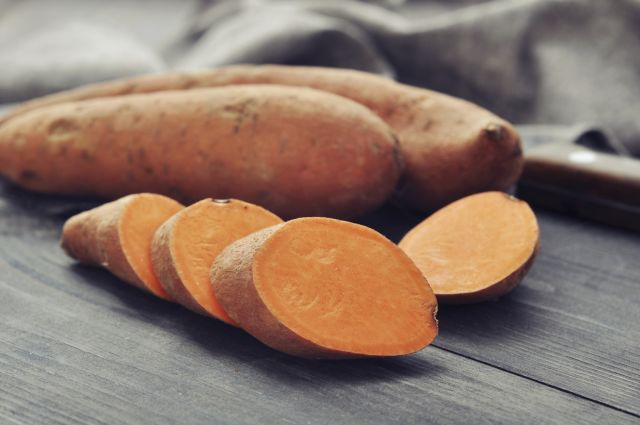Whenever you have potatoes on the side, make these your tubers of choice: sweet potatoes. They could be real friends to breast tissue.
A diet high in veggies could help protect against breast cancer. But carotenoid-rich produce—like sweet potatoes—may be particularly healthy, a study suggests.
Call in the carotenoids
The women in the study were at increased risk of breast cancer because of their dense breast tissue. Still, a diet high in orange and yellow produce was associated with a 50 percent lower risk of the disease in these women. Researchers speculate that the antioxidant qualities in carotenoids may help protect "at risk" breast cells against things that can damage DNA or trigger cell proliferation. Besides sweet potatoes, other yellow and orange produce that supplies carotenoids includes carrots, pumpkin, cantaloupe, mangoes, and sweet bell peppers.






